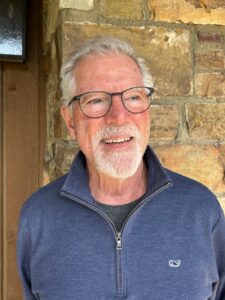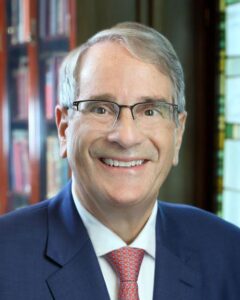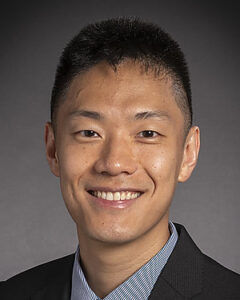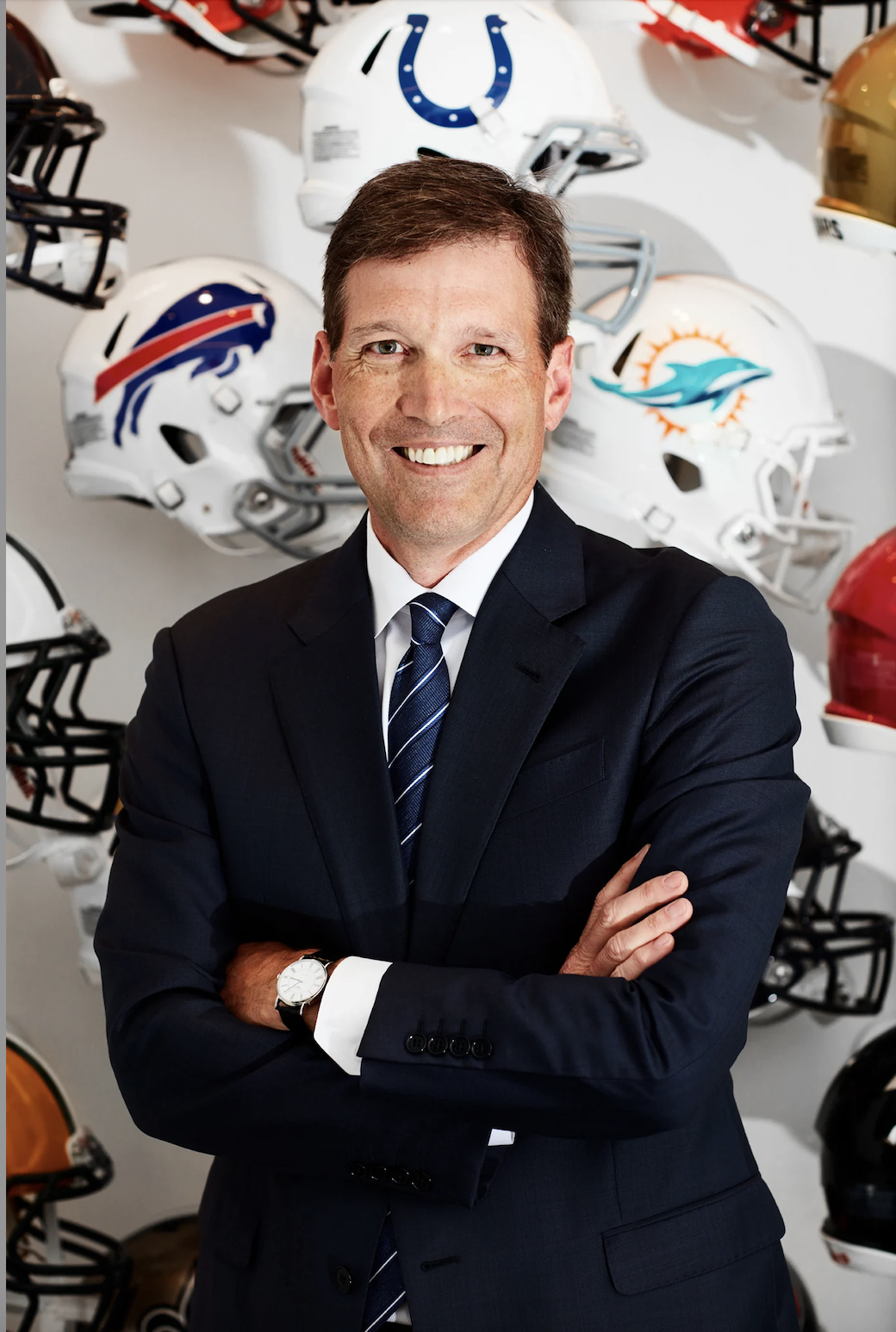Johns Hopkins UniversityEst. 1876
America’s First Research University
Frank Novak remembers the fear and uncertainty he felt as he battled the debilitating effects of trigeminal neuralgia (TN), a chronic condition marked by sudden, severe facial pain due to nerve compression or dysfunction. Initially misdiagnosed, Frank and his wife, Jill, were desperate for answers. A friend in Florida connected him with Johns Hopkins, where he met Dr. Henry Brem — an encounter that would change his life.

“Jill and I were frantic. The pain was just so bad. I thought this could be the end,” Frank recalls.
Brem had already reviewed Frank’s MRIs and, upon entering the room, quickly reassured him that his pain wasn’t caused by a cancerous brain tumor.
“He said, ‘I know what you’re thinking, and you don’t have it.’ That was the best news I ever had,” Frank remembers, adding Brem and the Hopkins Neurosurgery team worked with him through several procedures to treat TN, restoring his quality of life. “The best thing in the world is to be able to live a normal life.”
Grateful for the care he received, Frank has since dedicated himself to supporting the Department of Neurosurgery. He has funded professorships and served on the department’s advisory board with the goal of helping connect others to the world-class care he experienced.
Now, as Brem steps down after 25 years as chair of the department, Frank Novak and others are championing the Illuminating Hope Campaign, which will fund the new Translational Research Center in Honor of Henry Brem. The center will provide grant funding for Neurosurgery faculty to conduct neurosurgery-related research and ensure continued mentorship from Brem, benefiting patients like Frank for generations to come. Funds will also support Brem’s groundbreaking research, which he will continue at Hopkins.

For decades, Brem has been at the forefront of revolutionizing neurosurgery, pioneering advances like the GLIADEL® wafer and image-guided brain surgery that have reshaped the fight against brain tumors. Beyond his 40 years in Hopkins operating rooms and laboratories, his influence extends to the people he has guided — young surgeons who trained under his leadership and patients whose lives he has changed.
One of those mentees is Assistant Professor of Neurosurgery Risheng Xu, Med ’15 (MD/PhD). Xu came to Hopkins in 2007 as an MD/PhD student and remained at Hopkins for residency. His introduction to Brem came by way of Sol Snyder, for whom the Department of Neuroscience is now named. Initially told that combining surgery and research was unrealistic, Xu sought Brem’s advice. Brem dismissed the doubt, assuring him that excelling in both was not only possible but valuable. That conversation set Xu on the path to becoming a surgeon-scientist.

“Mentorship is the embodiment of what Hopkins Neurosurgery is all about,” Xu explains. “The science will always move forward, so what is relevant today probably will not be relevant years from now. What is actually enduring is Dr. Brem’s mentorship, his kindness to others, and the way he supports the junior faculty members.”
Xu, who now leads his own lab in the same space where Brem once worked, emphasizes that patient-centered care is a critical lesson he learned from Brem.
“As neurosurgeons, there’s so much emphasis on what happens in the operating room,” Xu says. “But Dr. Brem taught me that the most important thing you do with a patient happens before surgery, in the clinic. That’s where you establish a relationship with a patient.”
Dr. Allen Sills, Med ’90, also views mentorship not just as a component of training, but also as a defining pillar of Hopkins Neurosurgery. Now the NFL’s chief medical officer, Sills met Brem as a first-year medical student in 1987, joining his lab with little research experience. Brem’s mentorship became a guiding force throughout his career. Sills also completed his residency at Hopkins.

“It is not an exaggeration to say that every single day of my practice, whether I’m in the operating room or in the clinic seeing patients, there’s some imprint of his teaching that’s still with me,” Sills says.
Sills sees the new neurosurgery translational research center as a natural extension of Brem’s mentorship philosophy.
“This translational research center will provide an established, firmly identified pathway by which this can happen. It’s tremendously important for doctors and trainees,” Sills says. “I’m incredibly excited to see the impact that it’ll have for many generations to come.”
As Brem steps down as chair, his legacy endures — not just in his innovations, but in the generations of surgeons, researchers, and patients he has influenced. The Illuminating Hope Campaign and the Translational Research Center it supports will ensure his impact on mentorship and discovery continues to shape Hopkins Neurosurgery for years to come.
Topics: Friends of Johns Hopkins Medicine, Fueling Discovery, Johns Hopkins Medicine, Research, Neurosurgery, Promote and Protect Health